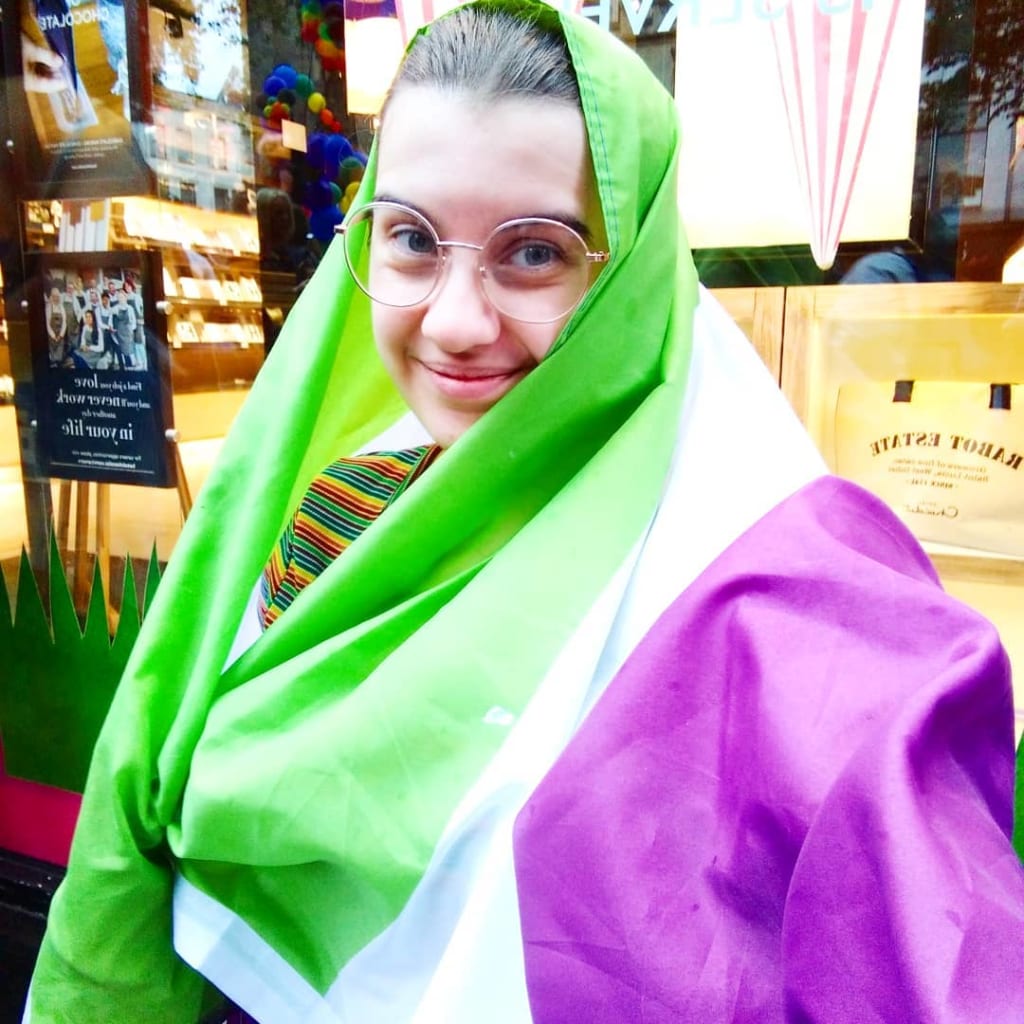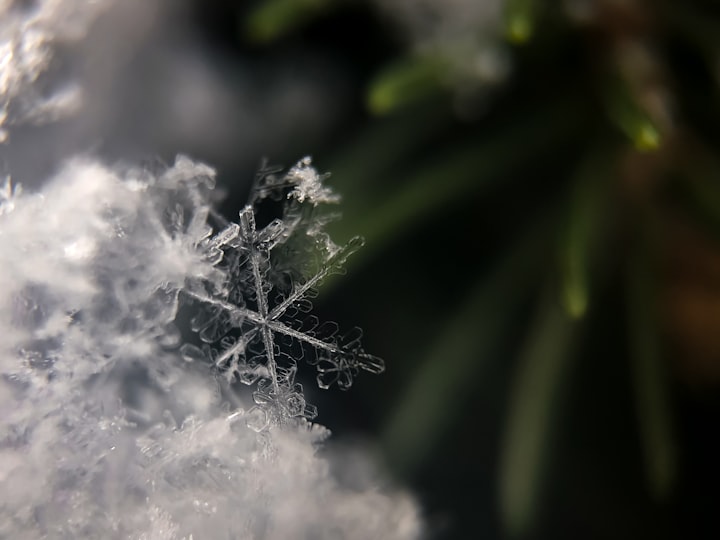Is "Queer" A Slur?
Welcome to another lesson in context with your best queer pal Max

As we move towards transgender day of visibility on the 31st of March, it’s a great time to reflect on the language we use to talk about LGBTQIA+ identities. Specifically the word queer.
My name is Max, and I’m here, I’m queer, and I’m genderqueer. Queer to me is the perfect amalgamation of individual labels that cover my sexuality, and genderqueer falls under the nonbinary umbrella, which in very basic terms, it means I am not male or female. When talking about my identity, I so often come up against well-intentioned cis people who tell me something along the lines of “Queer is a slur, so I won’t call you genderqueer. It’s a horrible word, and you shouldn’t use it.” But is it really a slur?
The term “queer” entered English language in the 16th century, usually meaning strange or odd, but later came to mean suspicious and not quite right, with a queer person being a person with mild derangement, or a person who exhibits socially inappropriate behaviour. Queer didn’t start to mean gay until around 1914. Even now in 2021, Oxford Languages still defines the word queer first as strange or odd, and then Homosexual (offensive).

But languages develop beyond dictionary definitions very quickly. Colloquial use of language often becomes more socially relevant than the dictionary use. A good example of this is the work “sick” or “sickening”. Most people use “sick” to describe something negative, like nausea, or cruelty. But in the past couple of years has come to mean something positive. “That’s sick” can mean “That’s excellent” or “You look sickening” can mean “You look fantastic”.
The development and evolution of language does not exclude slurs. The reclamation of slurs, also known as linguistic reappropriation, happens when a community uses the words that have been used pejoratively against them, but in a positive way. This reclamation goes a long way to disarming, in this case, homophobic people. The word “Gay” has been used as an insult since way before I was born- but I’ve never once heard somebody argue that gay is a slur, so why do we argue about the word queer? Both the terms queer and gay have been used as pejoratives for decades, but why queer hurts more, I don't know. But by reclaiming it, we take power away from queerphobia, and hold power for the queer community.
Moreover, queer is actually a very useful word. It does not simply mean “gay” anymore. It can be used to mean not-straight, which is far more inclusive than most of the words we have to describe sexuality and gender identity. The language around nonbinary sexuality hasn’t been fully developed yet. Most language around sexuality is very binary-centric. Terms like “same sex” and “opposite sex” attractions are based on having two sexes and two genders. Bisexuality, while thought to mean “attracted to both” actually means attraction to both one’s own gender and other genders, but not all. A woman who is attracted to other women is a lesbian. Pansexuality is the potential to be attracted to anyone of any gender. But sexuality is often more complicated than that. I could describe my sexuality using the following labels: asexual, biromantic, diamoric, or gay. Or I could just tell you I’m queer and save a lot of time and questions until it becomes relevant.
Queer can also be more inclusive than the acronym. There are more gender and sexual identities than Lesbian, Gay, Bisexual, Transgender, Questioning, Intersex, and Asexual. People with identities who aren’t represented as a letter in the acronym, instead falling under the + sign have spoken out about feeling excluded, or feeling like an afterthought. Some argue that the Q in the acronym means queer, and there are some versions of the acronym that have 2 Qs, though these versions were criticised for their length.
Use of the word queer provides the perfect opportunity for a lesson on context. I am genderqueer, and calling me genderqueer when talking about my gender identity is not the same as when someone spits on me in the street and calls me an effing queer. The intent of calling me what I am is much different than calling me queer as an attempt to insult me. People who aren’t queer should always be careful when using it, but when you know a person is queer, it’s ok. If you don’t know, err on the side of caution and use a different word.
And not all LGBTQIA+ people, or otherwise non-straight people are OK with being called queer in any context, and do not use it for themselves. That’s ok too! This article doesn’t exist to tell every LGBTQIA+ person that they should be OK with being called queer. You don’t have to be. I will never call you something you don’t want to be called, and neither should anybody else. But my identity is mine, and it’s up to me what language I use to describe that.
Queer when used correctly, is not a slur.
About the Creator
Max Fisher
Max is a disability and trans rights activist from Nottingham. They are non-binary, and they live with chronic pain, using a wheelchair part-time. They are a passionate scientist. Instagram: @Ouch_mouse | Twitter: @OuchMouse8






Comments
There are no comments for this story
Be the first to respond and start the conversation.